The Wizardry Skills of Cawas Lord
- Shankar Iyer | burmanfan@gmail.com
The trailblazer for the community of musicians, Cawas Lord was the first-ever musician of the Hindi Music Industry, you heard it right! Born in 1911 to an affluent Parsi family in Pune, Cawas was brave enough to follow his heart and that made him take the decision of moving to Mumbai at the age of 12 to pursue music. Creating an unprecedented history that others get inspired by, the Lord was one of them whose revolutionary work has not only enthralled its audience but also the fraternity.
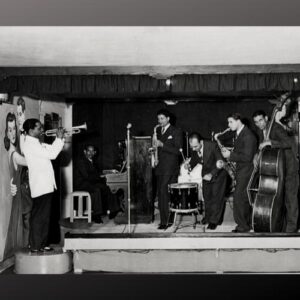 Here’s some amazing trivia, even if we had to combine the outputs/works of Asha Bhonsle, Lata Mangeshkar, and Mohd. Rafi, it would not match Cawas lord’s record, of having played over 25,000 songs. That’s the kind of legend he was! His career graph is nothing but an exhilarating narrative to observe. On 24th December 2007, he bid adieu to the world at the age of 96 leaving us with a rich reservoir of music. Kersi Lord shares his father Cawas Lord’s story of courage, passion, and an undying drive to do what you love.
Here’s some amazing trivia, even if we had to combine the outputs/works of Asha Bhonsle, Lata Mangeshkar, and Mohd. Rafi, it would not match Cawas lord’s record, of having played over 25,000 songs. That’s the kind of legend he was! His career graph is nothing but an exhilarating narrative to observe. On 24th December 2007, he bid adieu to the world at the age of 96 leaving us with a rich reservoir of music. Kersi Lord shares his father Cawas Lord’s story of courage, passion, and an undying drive to do what you love.
Pioneering the use of multiple rhythm instruments from the West for instance Instruments like the Bongo, Conga, Cobache, Castanet, Reso Reso, and the Triangle discovered a new meaning in Hindi film music, these were excellently made known by Cawasji’s unbeatable playing spirit, passion, and mastery. He had a pivotal role to play behind the creation of the Foley sound, for example, to create the sound of horse hoops he used coconut shells or crust and that’s how many other sounds came to being which even today are extensively implemented.
Do you know the first movie song in which Cawasji played?
If I remember he did begin playing in the early 1930s. In fact, he used to tell us in the beginning that he played the background music for ‘Alam Ara’.
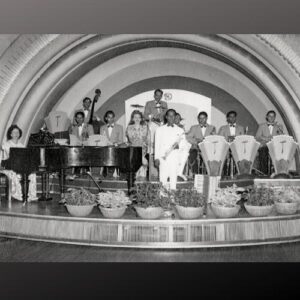 Cawasji mentioned that he was self-taught completely. Could you elaborate more on this?
Cawasji mentioned that he was self-taught completely. Could you elaborate more on this?
Yes, the drums. My dad belonged to a very traditional and strict upbringing. Though he liked music, he was not allowed to play even musical toys, or forget musical instruments. Therefore, in spite of a comfortable lifestyle, he was feeling suffocated and took the brave decision of moving to Mumbai, to pursue a career in music around 1923, at the age of 12.
Was film music his first priority when he came to Bombay?
No, film music came later on. He used to bunk school to attend his music classes. Later on, he also became a barman at the Taj hotel for 2-3 years. Taj always had to visit foreign bands from whom dad learned all Latin American instruments. Dad’s love for Jazz promoted him to study playing the drums, simply by watching the foreign drummers and conversing with them. It was during the same time that he met Behram Irani, who became my uncle afterward. Later on, when Behram Irani was forming a band and was short of a trumpet player. Coincidentally, Behram also used to teach many people in his music school at Grant Road, where we stayed. There is where Dad learned the trumpet from Mr. Wallis and later on from Mr. Louis Moreno of Spain. In fact, Mr. Moreno was also one of the band leaders at the Hotel Taj.
Would it be fair to say that he was one of the very early musicians to know both the brass and rhythm sections?
Yes, and he learned very thoroughly by additionally reading books on drums. He learned his basics well and also taught us very well. His penchant for rudiments was evident in the fineness of the sound that originated from his drums.
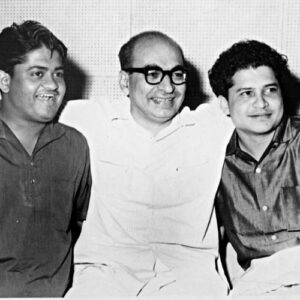 How did he earn his livelihood then?
How did he earn his livelihood then?
Dad played drums for jazz dance classes, dance bands, and social dances at various weddings. During those days, he also learned and played the military drums and pipes with the Auxiliary forces of India (AFI). Also, during World War II, he applied through the AFI to join the King’s British army. During the interview, they found him overqualified but offered to join a new entertainment program for soldiers called Southern Army Entertainment (SAE) and later Entertainment National Services Associations (ENSA). During this stint, Dad interacted with senior people like Jack Hawkins, the famous British actor. It was under these two groups that Dad traveled all over India and Burma as a drummer and Trumpeter to entertain British troops
When and how did Cawas Lord first start to play music for films?
Post World War II, Dad’s service with the British army ended; he had also joined the band Chic Chocolate (originally Chico Vaz, the fine jazz trumpet player from Goa). Through him, Dad came in touch with film music maestro C Ramchandra and played at several of his recordings.
How did the association with C Ramchandra progress?
C Ramchandra (we call him Anna), the innovative music director that he was, always liked something new and different. When Chic Chocolate played with Dad at clubs, Anna used to come there to request Chic Chocolate and my dad to play for his late-night recordings. And this would be sometime at 2 am in the morning!!!! Thus, songs like “Gore gore O baanke chhore” and “Eena Meena Deeka” came to birth. In fact, even I have played the accordion in “Eena Meena Deeka”.
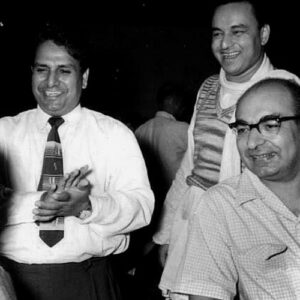 Any incidents or trivia from his film career you wish to reminisce about?
Any incidents or trivia from his film career you wish to reminisce about?
My dad always had some humor or pranks up his sleeve, he always fooled around in the recording studio. The well-known Sarangi player Ramnarayan sometimes used to leave his Sarangi in the studio and go out. Daddy used to pick up his Sarangi and sit in the playing posture. He has done this many times.
Dad played instruments like the Bongo, single Congo, and Reso-Reso in songs for films. I also distinctly remember the first use of the Castanet in Kardar production “Jadoo’51”, music by Naushad. The Spanish original had a characteristic 1-2-3 beat, required for “Jadoo”, though very different from the typical Indian Dadra. So, the effect was generated using 3-4 Castanets, which dad, me, and the well-known accordion player Goody Seervai’s assistant played together. We were also part of “Tarari Arari Arari” from Naushad’s “Dastaan’50”.
Did Cawasji play for other music directors?
Yes of course; in fact, for all the composers of those days. Dad played regularly for Naushad, Shyam Sunder, Anil Biswas, Roshan, Madan Mohan, Shankar-Jaikishan, Jaidev, S D Burman, Kalyanji-Anand Ji, R D Burman, and Laxmikant-Pyarelal. I must tell you that Dad was very close to the Burmans; we were like one family.


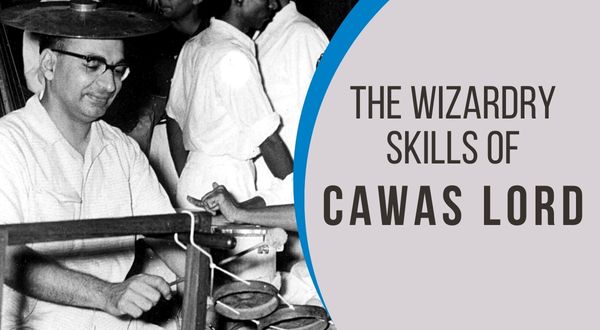
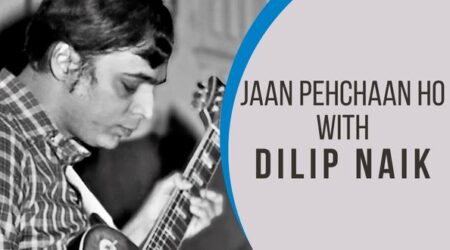
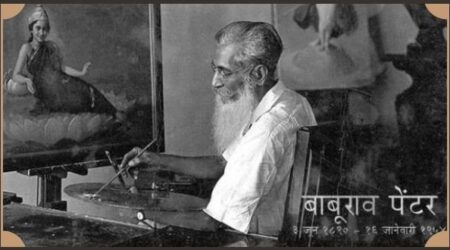
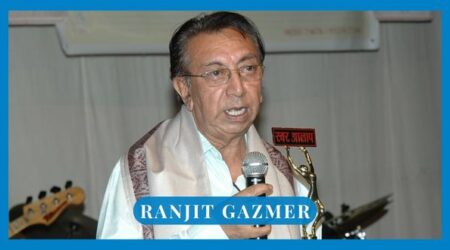
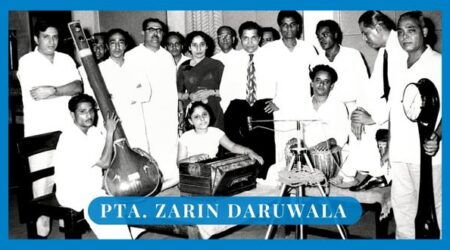
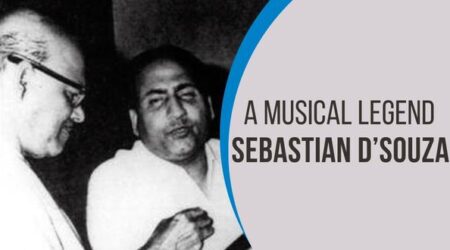
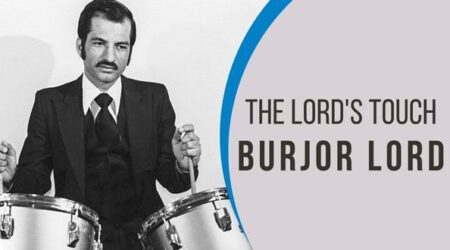
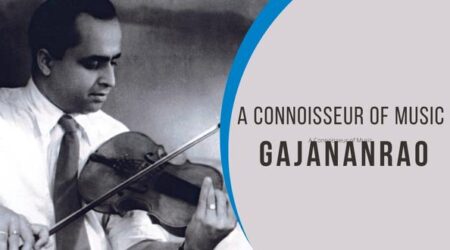
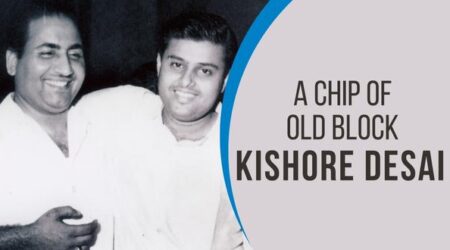
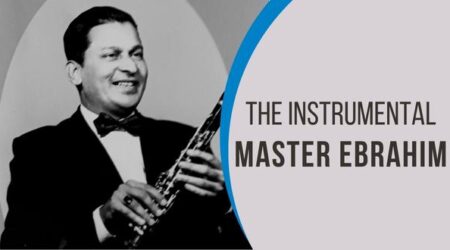
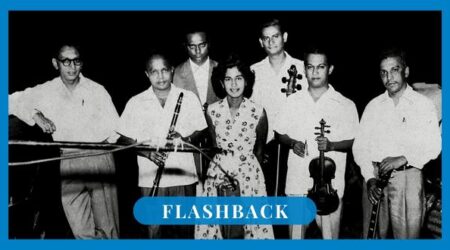

Leave a Reply